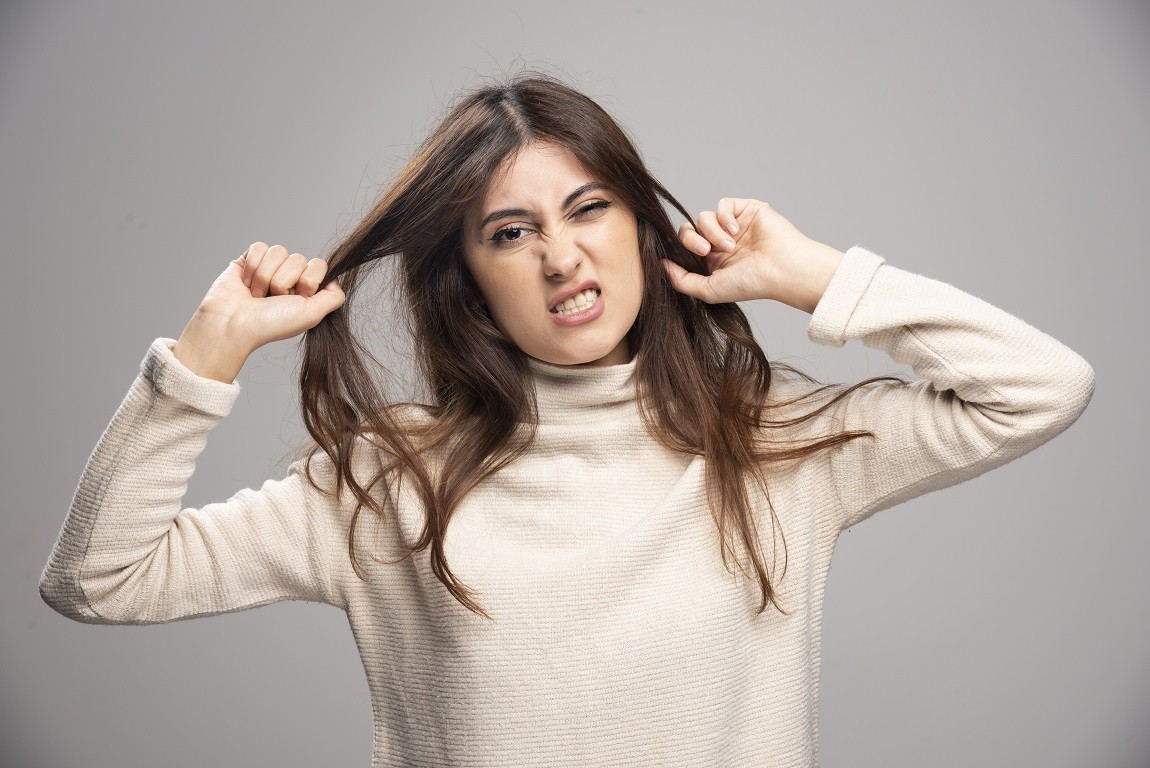
Did you know that every second adult in the world is affected by dandruff?
Dandruff not only causes awkwardness due to visible white flakes often falling on your shoulder and clothes but also, irritation from itchy scalp and hair fall. Firstly, let’s understand what forms dandruff. Our body is always making new skin cells and shedding off the old ones that resurface in the outer layers of the skin. When there is an imbalance in scalp conditions, this cell turnover in the scalp increases so rapidly that the dead skin cells along with natural scalp oils pile up and form larger, visible flakes.
An oily scalp is also a breeding ground for bacteria (mainly Propionibacterium and Staphylococcus) and fungus (Malassezia) whose secretions irritate your scalp leading to dandruff, hair loss and itchiness. If your dandruff keeps returning time and again, then it’s high time you watch out for its causes!
Let’s have a look at some important causes that can create an imbalance in scalp conditions and trigger dandruff and itchy scalp.
Climatic and Seasonal Changes
Dandruff increases typically during the winter. The dry and cold climate dries out your scalp, resulting in flakes and itchy scalp.
Dry air
Prolonged exposure to dry air from central heating or air conditioning depletes the scalp's moisture, making it drier and flaky.
Improper Hair Care
Daily hair wash, repeated use of a hair dryer and styling iron can dry out your scalp, resulting in smaller white ball-like flakes. Whereas, in the case of an oily scalp, not washing the hair for days together can cause oils and dead cells to build up thus, resulting in small to large oily flakes.
Sensitivity to Chemicals
Hard water, harsh shampoos, conditioners, hair colors and synthetic styling products leave chemical residues on the scalp. These chemicals disrupt the acid balance of your scalp tissue thus, sensitizing the scalp and weakening its protective barrier against infections.
Unhealthy Food
Excess consumption of refined sugar, fatty foods, deep-fried foods, processed foods and gluten products can trigger insulin spikes, which in turn stimulate hormones and can increase oil secretions. Unhealthy foods create nutritional deficiencies in the body. Lowered levels of Zinc as well as Vitamin B2, B3 and B6 can cause scalp problems.
Stress
Stress can alter the sebum or oil levels of your scalp. Excessive sebum on the scalp breeds fungus leading to itchiness and flaking.
Hormonal changes
Hormonal imbalances can play a role in dandruff and itching. Dandruff may appear when hormonal levels are altered, especially during the puberty when skin produces more oil than usual. In women, hormonal changes during the menopause may cause dandruff flare-up.
Genetics
Hereditary predisposition can also be a reason for excessive cell renewal on the scalp, resulting in flakes.
Scalp Issues
Dry flakes and itchy scalp can also occur as symptoms of conditions like seborrheic dermatitis, psoriasis, or a contact allergy.
So if you start spotting flakes, firstly, identify and tackle the root cause of your dandruff. Also, regular use of certain natural, herbal oils derived from Neem, Rosemary, Hibiscus and Tea trees having anti-fungal, anti-bacterial, anti-inflammatory, moisturizing and nourishing properties can benefit you. We bring to you, a perfect blend of these herbal oils in vedistry: Anti-dandruff oil and vedistry: Anti-dandruff shampoo that can relieve you from dandruff and itchy scalp, maintain the oil balance in your scalp and nourish your hair roots, the natural way.